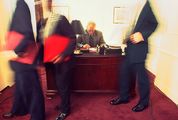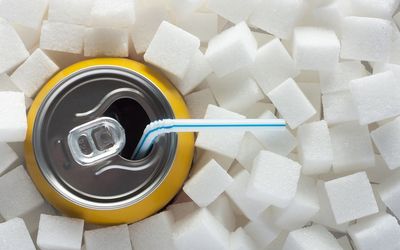THE Treasury has proposed a 20% tax charged per gram of sugar per 100ml of liquid to discourage the addition of large amounts of sugar to beverages and to curb consumer purchases. In so doing, the Treasury would have us believe it will help to tackle the country’s high obesity rates.
It is a laudable objective, but it has a flaw. Not only is the proposed tax unwieldy, it will be near impossible to police and, critically, would do little to target hidden sugars in many of the other foods we consume.
Taxes are most effective when they are simple to implement. Just as ad valorem taxes can result in companies creating complicated invoicing, pricing and rebate structures to disguise true invoice values, a tax based on grams of sugar per 100ml assumes you know how much sugar is in each and every product sold, and how much of each product is sold.
Ensuring compliance internally would be difficult enough, especially for smaller operators, but would also require that an army of South African Revenue Service (SARS) auditors test products to ensure they comply with what is claimed on the label and in the tax declaration.
One of SARS’s first challenges would be to determine the size of the sugar-sweetened beverage market as a whole. Based on our understanding, much of the data published by research agencies regarding the size of the beverage market in SA is heavily skewed towards the major retail trade, with the informal sector being significantly understated. With a proliferation of new entrants and smaller players, simply identifying who should be paying this tax would be a challenge.
As proposed, tax collection under such a system would be biased towards large companies that sell to high-end retailers where sales could be accurately reported and declarations checked.
This would not be possible in those segments of the market where businesses operate informally or on a cash basis. A sugar tax based on declared consumption would only encourage this informalisation, and an unintended consequence could be the potential loss in other taxes, including VAT and income tax.
Although clearly a major contributor to our excessive sugar consumption, sugar-sweetened beverages should not be the only target. High levels of sugar are added to many other common foods and beverages, from staples such as bread and cereals to sauces and dairy products. Sugar levels in many flavoured yoghurts is higher per 100ml than in many sweetened beverages.
On this basis, to exclude dairy-based beverages or dairy products makes no sense. If the intention behind this tax is to improve health and not revenue collection, it does not make sense to leave out a large proportion of the sugar consumed or to create potential loopholes for tax avoidance by adding milk to what is otherwise a sugar-sweetened beverage.
If the Treasury decides a sugar tax is the best tool to fight obesity — and the success of similar initiatives elsewhere is at best mixed — it would do far better to tax sugar at source and not to try to tax beverages at the factory gate. As there are only four or five sugar producers in the country and a few importers, taxing suppliers and having them recover the tax from their customers would not be challenging or expensive.
In this way, SARS could implement a lower tax per gram of sugar and deliver the same contribution to the Treasury’s coffers. And, most important, it would encourage lower consumption of sugar across the entire food and beverage industry.
Taxing product manufacturers’ sugar usage rather than what they claim on their labels would also avoid the need for expensive compliance monitoring.
Instead, manufacturers would be incentivised to reformulate their products to use less sugar rather than misrepresenting sugar content or their sales volumes to reduce taxes. The need for complex definitions of sugar-sweetened products and consequent loopholes would be avoided.
The beverage industry is extremely competitive in SA, and margins are thin. The recent increase in the sugar price alone has already encouraged producers to reduce sugar levels in some beverages in order to keep prices down.
As such, even a much lower tax on sugar than the one proposed would almost certainly drive some producers to reduce sugar levels further, or to use sugar substitutes.
As long as these were determined to be healthier and were therefore not taxed, the initiative would have achieved its goal.
Most importantly, taxing sugar consumption would mean large and small companies would have to comply, rather than the tax being collected only from those ethical companies that voluntarily comply by declaring their sugar levels and actual sales. With a broader base to collect from, the Treasury would see its coffers benefit more, even with a substantially lower tax.
An obvious challenge is that a sugar tax — either at source or at the factory gate — could lead to higher imports of finished goods containing sugar. As a country, SA simply can’t afford to encourage the importation of more manufactured goods because of the significant negative effect on the entire supply chain, as well as employment levels. To avoid this, the tax on sugar must be kept as low as possible to reduce the incentive to import cheaper products.
Whether the intention is to reduce obesity in SA or simply to broaden the tax base, a high tax on sugar in sweetened beverages only, paid mainly by a few large producers, is not the solution. It will cost a fortune to police and encourage tax avoidance at a number of levels.
Beverages consumed in SA are by and large produced locally and create thousands of jobs throughout the supply chain.
Let’s ensure we balance the positive intention of reducing obesity with the practicality of collecting the tax efficiently and fairly across all products that consume sugar, and not risk damaging an industry and destroying jobs.
• Drew is chief commercial officer at Boxmore Packaging, a supplier of packaging materials to the beverage industry.























